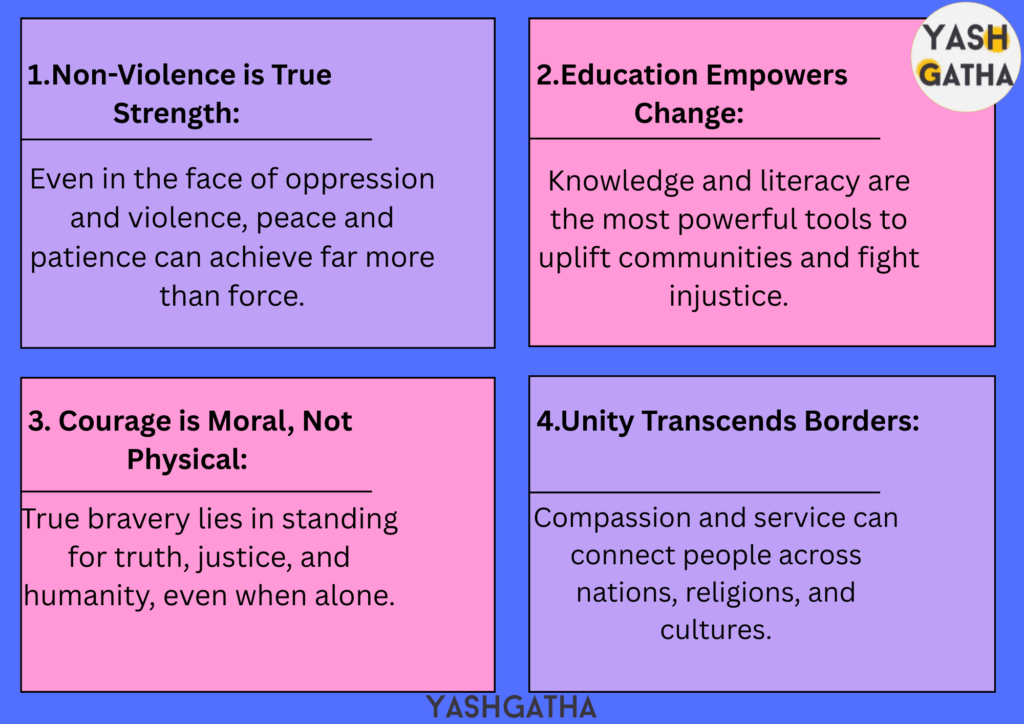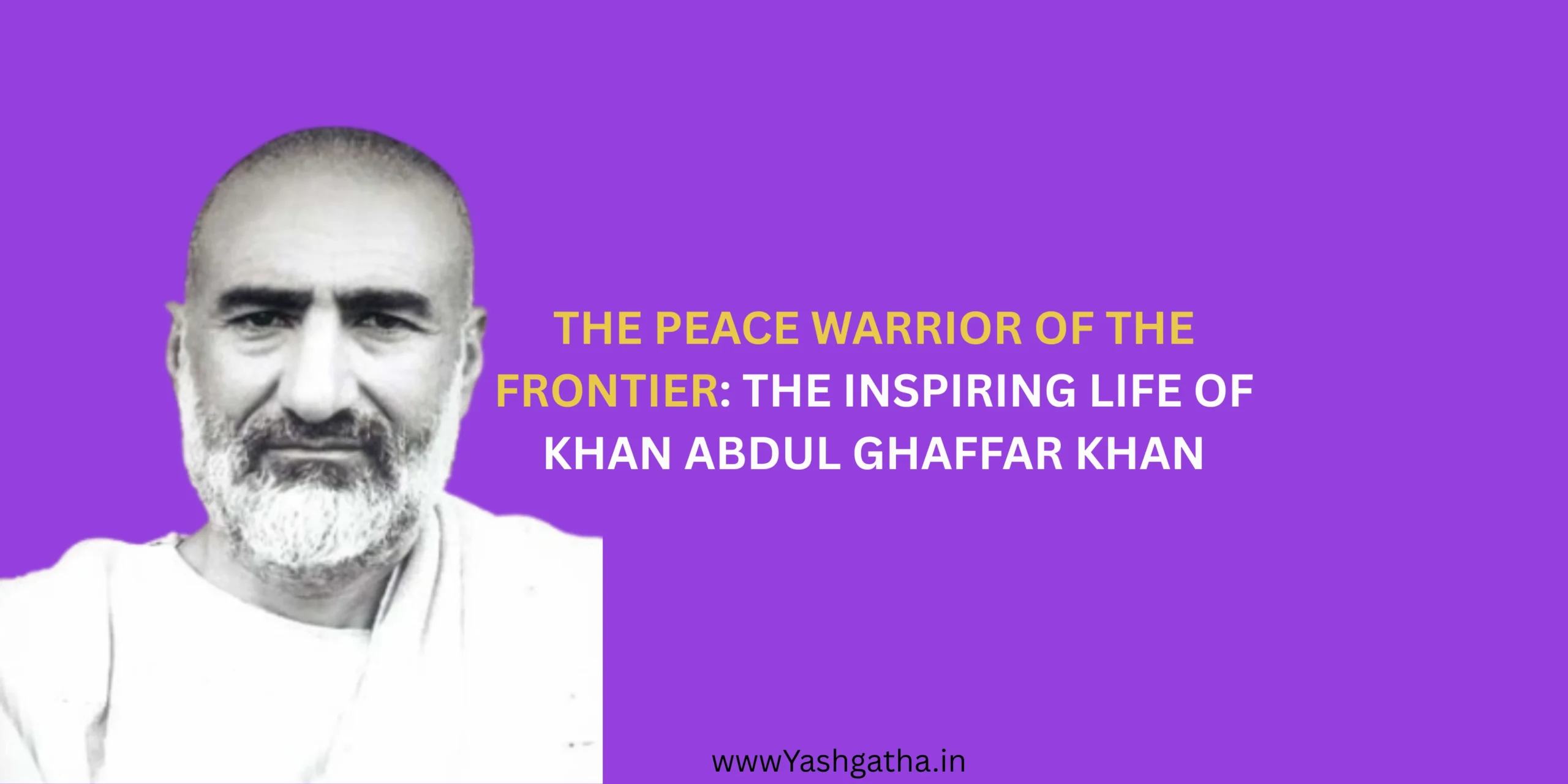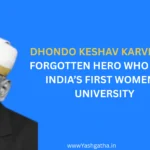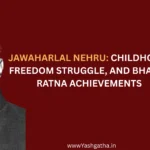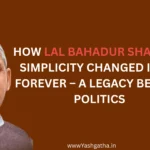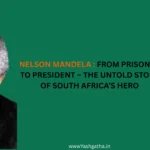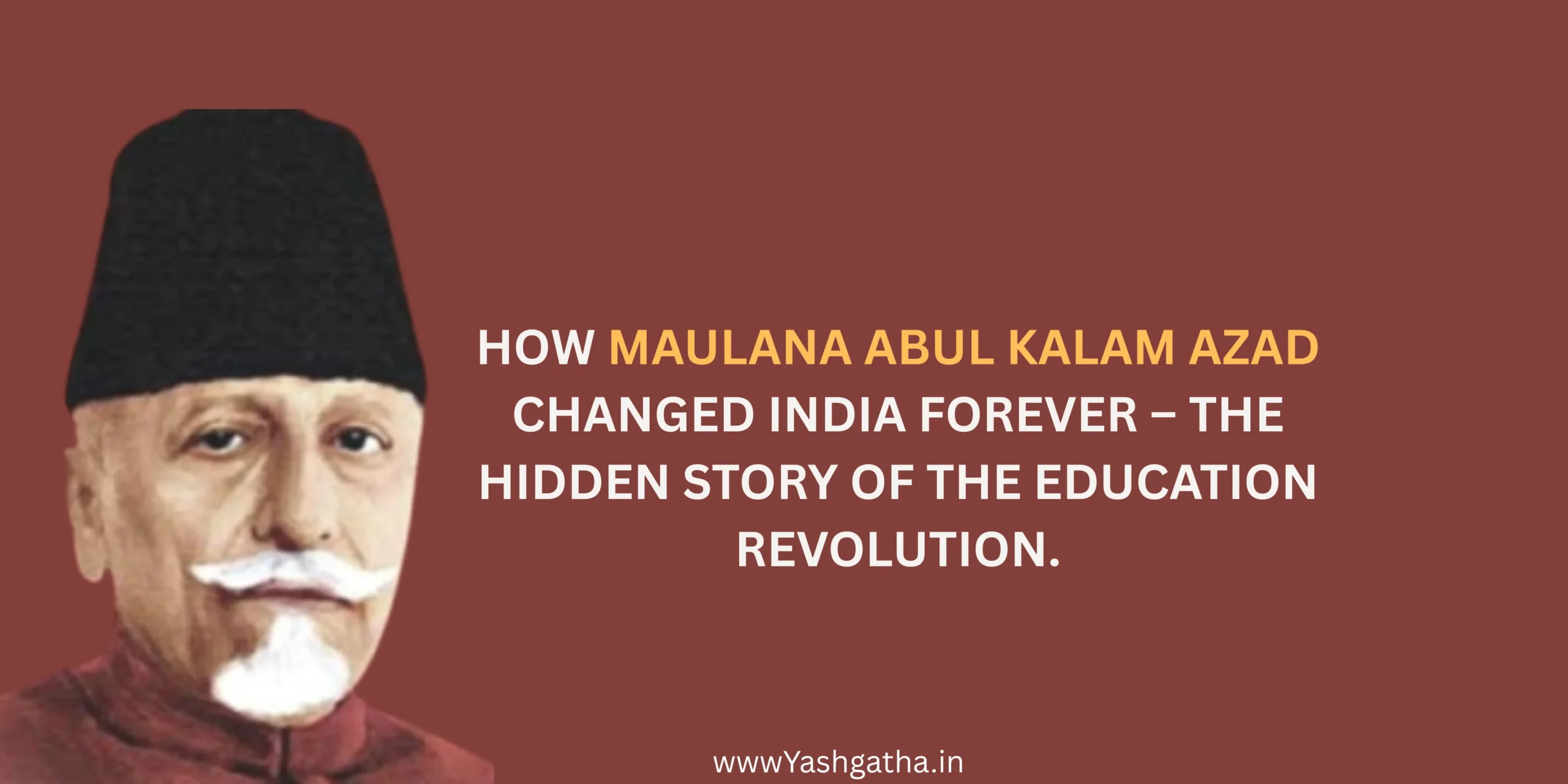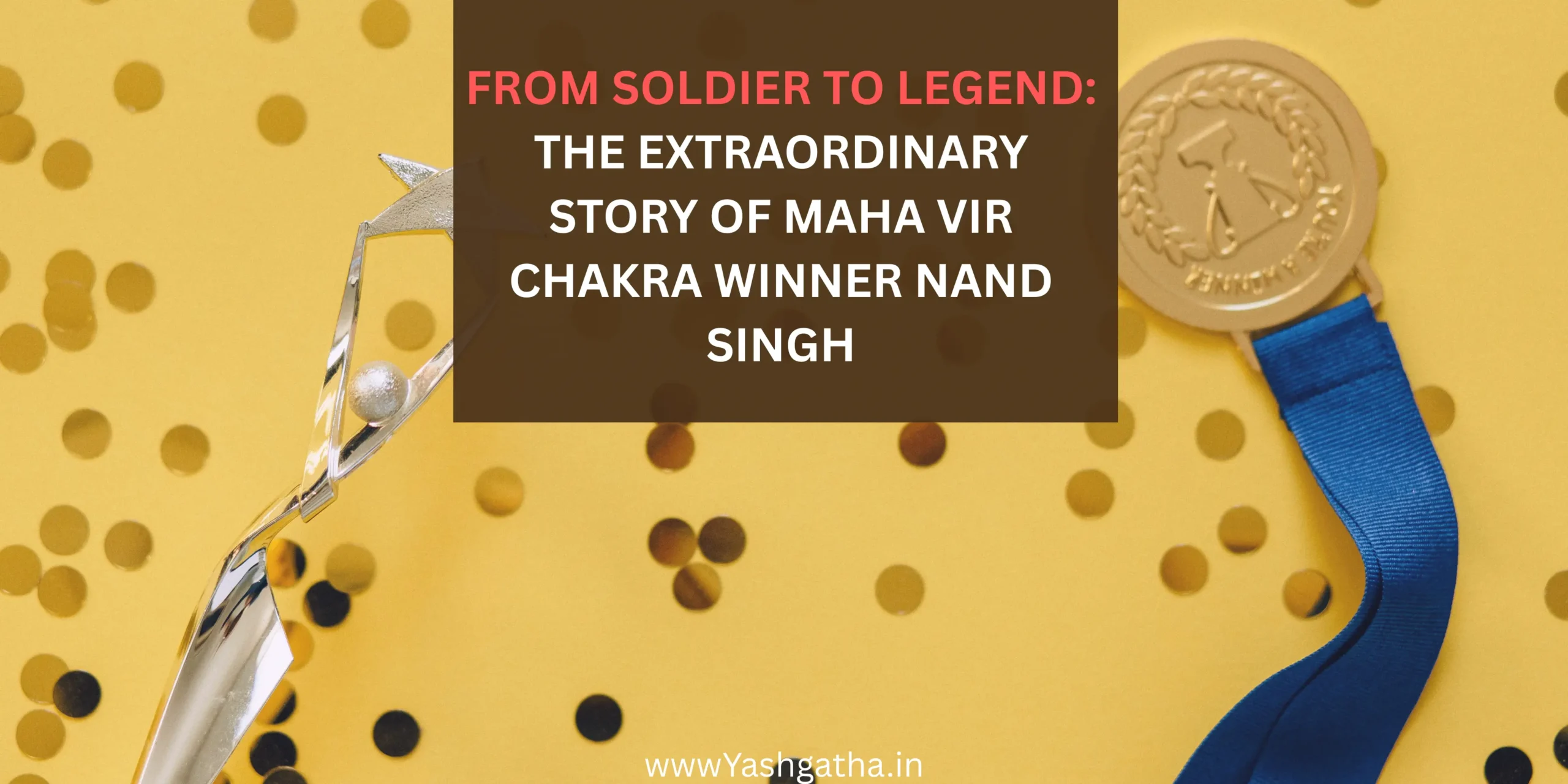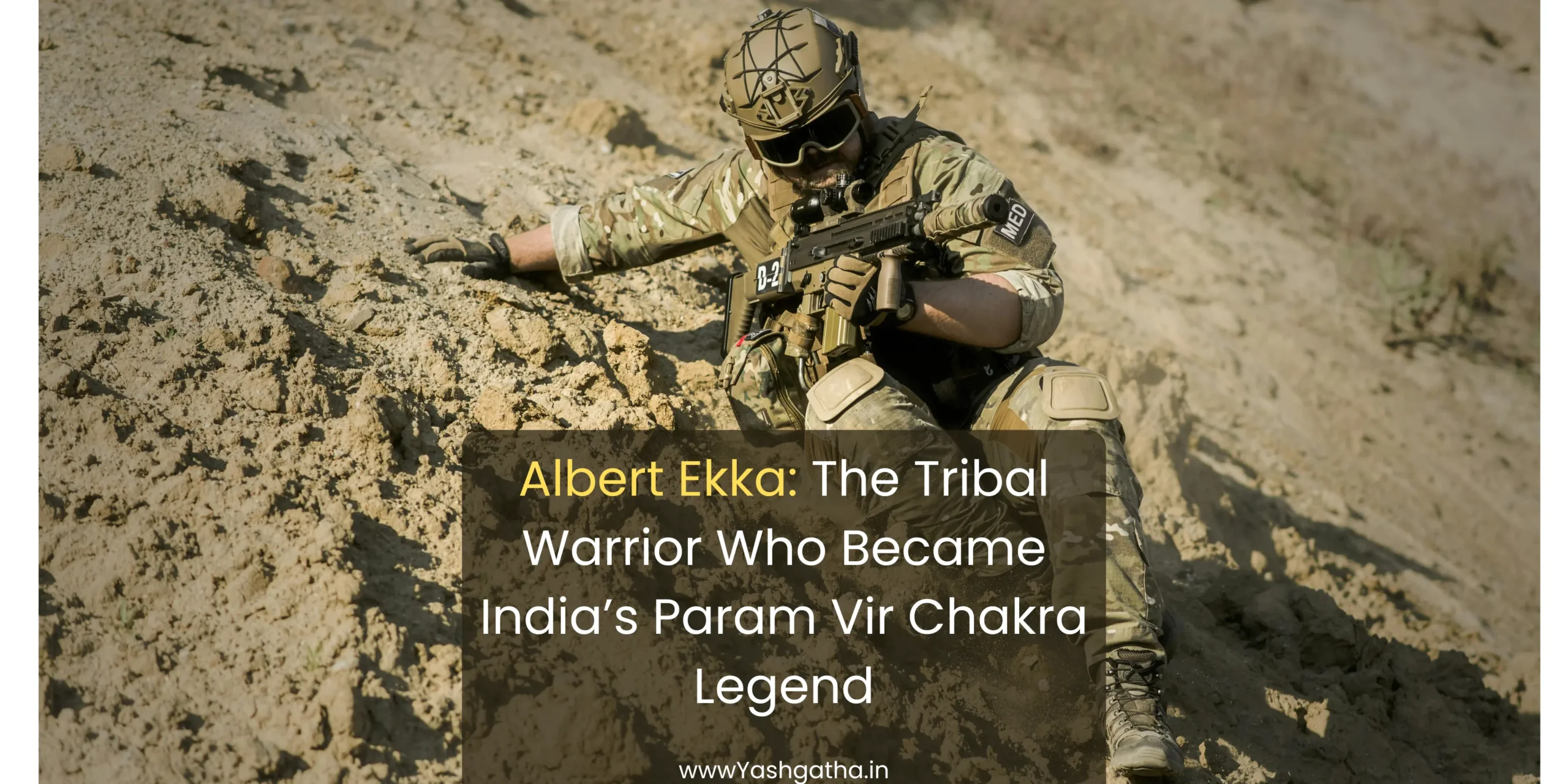Khan Abdul Ghaffar Khan, fondly known as the Frontier Gandhi, was a visionary freedom fighter and social reformer from Utmanzai, Charsadda (North-West Frontier Province). Honored with India’s Bharat Ratna in 1987, he dedicated his life to promoting education, peace, and non-violence among the Pathan community. A devout believer in unity and humanity, he proved that true courage lies in compassion, inspiring generations with his message: “My religion is truth, love, and service to humanity.”
Known to the world as the “Frontier Gandhi,” Khan Abdul Ghaffar Khan was a fearless freedom fighter who chose the path of non-violence over bloodshed in a land torn by conflict. A close ally of Mahatma Gandhi, he built an army of peace called the Khudai Khidmatgar—men and women who fought the British Empire without lifting a weapon. His life’s journey from the rugged mountains of the North-West Frontier to being honored with India’s Bharat Ratna stands as a timeless lesson that true strength lies in peace, not power.
Early Life & Challenges :
Khan Abdul Ghaffar Khan was born on February 6, 1890, in Utmanzai village, Charsadda, located in the rugged North-West Frontier Province (now in Pakistan). He belonged to a prosperous Pashtun family known for its strong tribal traditions and deep-rooted sense of honor. From a young age, Ghaffar Khan stood out for his intelligence, compassion, and desire to bring change to his people.
At a time when education was rare in his region, he defied convention by attending a British-run school in Peshawar. His decision was met with criticism from his conservative community, which viewed Western education as a threat to tradition. Yet, Ghaffar Khan believed that education was the true weapon of freedom.
His early years were marked by conflict between faith and reform, as he struggled to uplift his people while staying true to Islamic values. He witnessed firsthand the brutality of British colonial rule and the cycle of violence among his own people. Instead of taking up arms, he chose the path of peace—an extraordinary choice in a region known for blood feuds and warfare.
One of his biggest challenges was to convince his fellow Pathans that non-violence was not a weakness but a strength of the truly brave. Facing imprisonment, insults, and even betrayal, Ghaffar Khan never abandoned his mission. His courage to stand alone for peace in a violent land became the foundation of his lifelong struggle.
Turning Point:
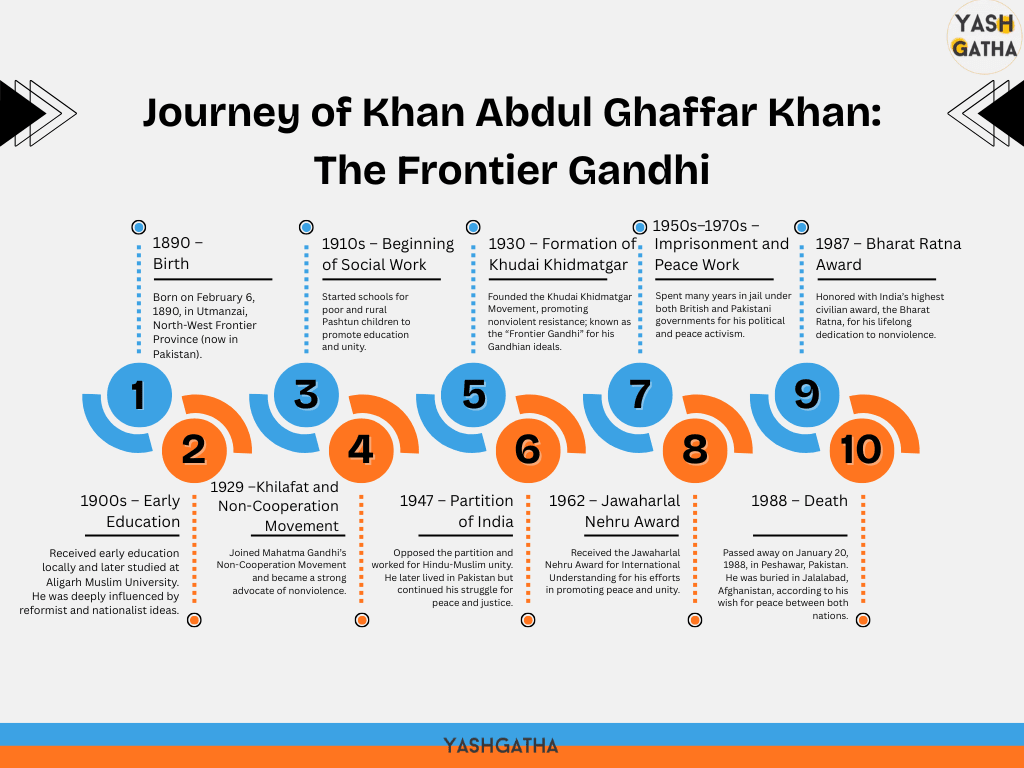
The Recognition & Award :
In 1987, after decades of sacrifice, struggle, and unwavering commitment to peace, Khan Abdul Ghaffar Khan was honored with India’s highest civilian award — the Bharat Ratna. This recognition came as a tribute not only to his role in India’s freedom movement but also to his lifelong dedication to non-violence, education, and human unity. Known as the Frontier Gandhi, he became the first non-Indian citizen ever to receive the Bharat Ratna, symbolizing that the values of truth and compassion know no boundaries. The award celebrated his vision of a world where justice and peace triumph over hatred and violence — a legacy that continues to inspire generations across India, Pakistan, and beyond.
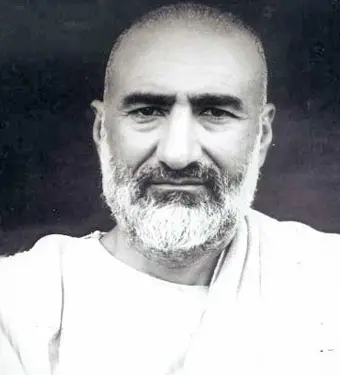
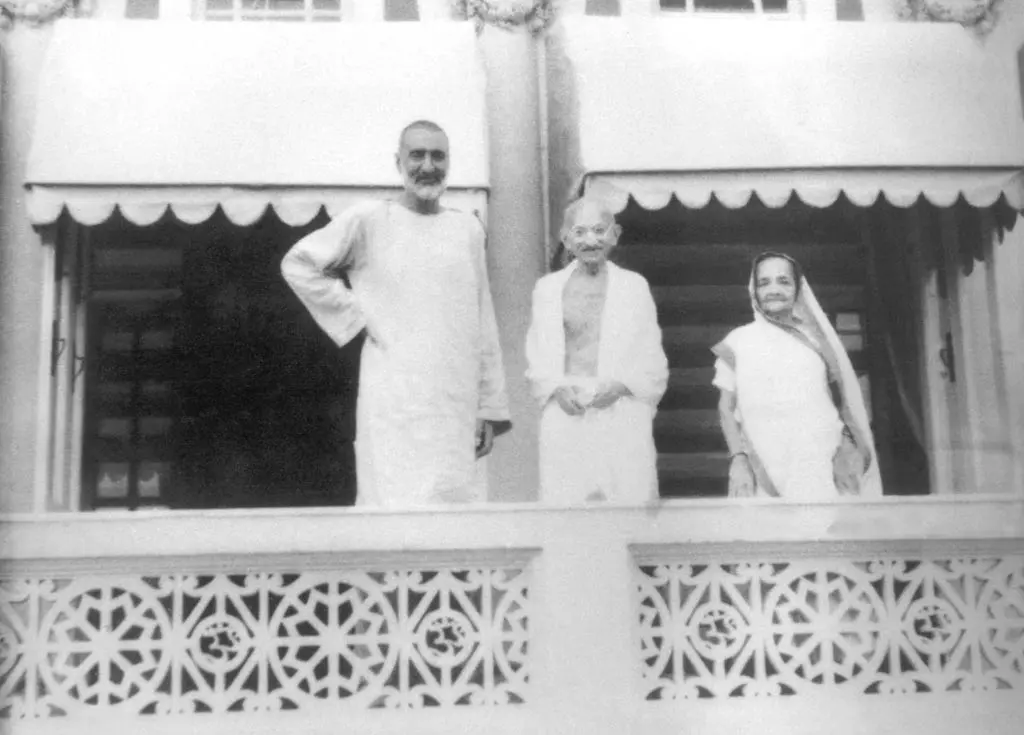
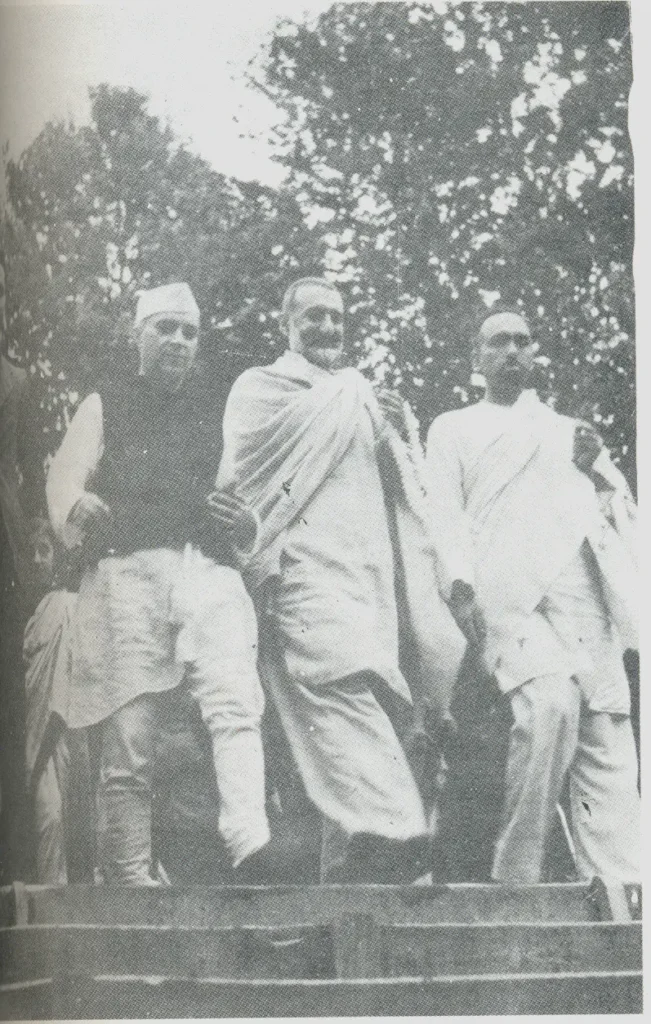
What Changed After the Awards :
After receiving the Bharat Ratna in 1987, Khan Abdul Ghaffar Khan’s life and legacy experienced renewed recognition and global attention. Key changes and impacts included:
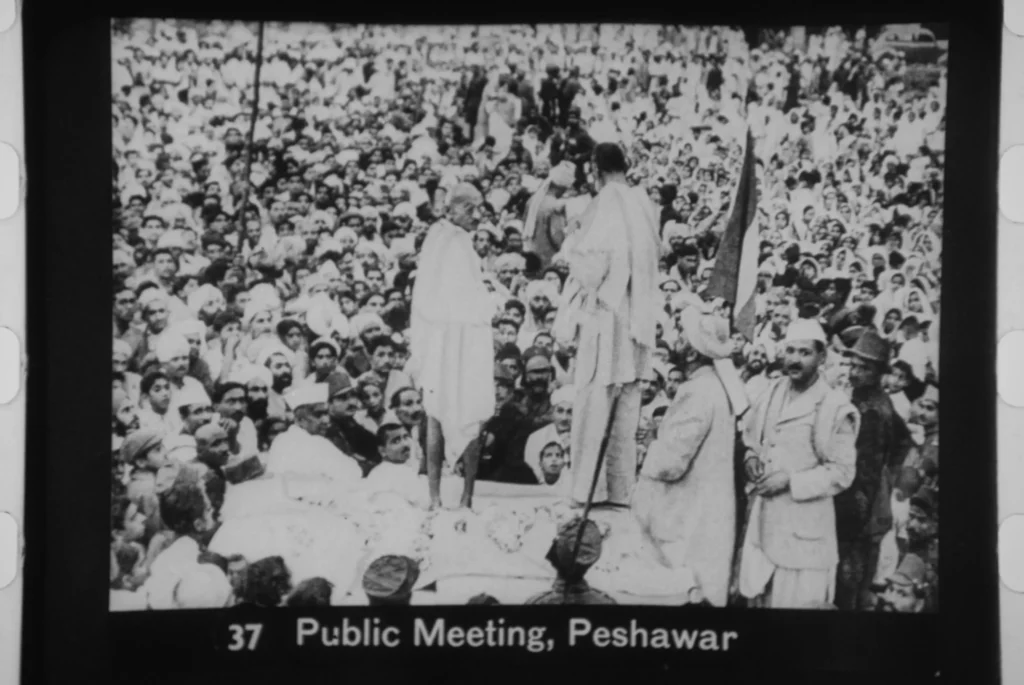
- Global Recognition: His work as a champion of non-violence and peace reached audiences beyond South Asia, inspiring international human rights and peace movements.
- Symbol of Unity: Became a living symbol of Indo-Pak friendship, with people on both sides of the border acknowledging his lifelong struggle for harmony.
- Inspiration for Youth: His story encouraged a new generation of activists and reformers to adopt education, compassion, and non-violent activism as tools for change.
- Legacy Preservation: His contributions to the Khudai Khidmatgar movement and educational reforms received renewed attention in books, documentaries, and media.
- Moral Victory: Though his final years were spent in Pakistan, the award reinforced that his principles of peace and humanity transcended national boundaries, leaving a lasting impact on global civil rights discourse.
Yashgatha Takeways:
